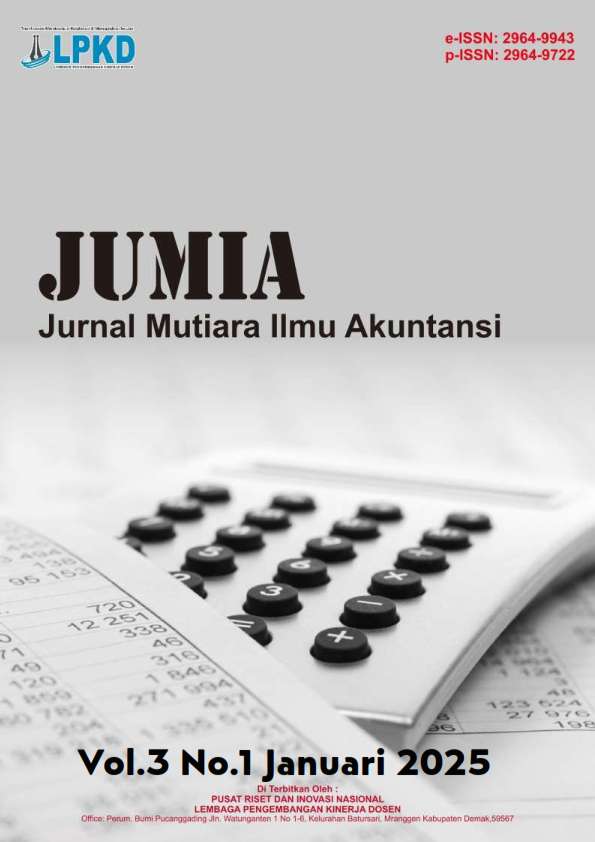Akad dalam Transaksi Derivatif
DOI:
https://doi.org/10.55606/jumia.v3i1.3514Keywords:
transactions, derivatives, Financial, shariaAbstract
Nowadays, the development of transactions in fi nacial institution very rapidly, both in the new contracts, development of contracts that already exist, or a combination of the two contracts that have been established. This is a response of fi nancial institutions to the need of modern society, as well as an effort to give alternative business transactions to its customers. Derivatifs transactions is hybrid investment, grafts from the original, or new transactions arising as a form of deviation or development or specifi city of the transactions that have been established. These transactions usually have patterns similiar to original transactions, but there are different things that are infl uenced by certain considerations such as tradition, mashlahah, etc. As for the models of derivatif transactions in islamic fi nancial institution are : the merging model (include : mudarabah mushtarakah, bai’ ‘inah, bai’ tawarruq, bai’ wafa and beli gadai emas), improvement ( include : mudarabah and musharakah with jaminan, mudarabah and musharakah parrarel, and rahn tasjily), and qiyas model (include : paroan, pro telon, pro papat, etc). Ulama have argued that derivatif transactions based on the principle “al-ashlu fi al-mu’amalah al-ibahah, hatta yadullu al-dalil ‘ala tahrimihi. Departing from this principle, then the Ulama allow, ikhtilaf, and forbid the derivatif transaction.
References
Ahmad Ifham Sholihin. (n.d.). Buku Pintar Ekonomi Syariah. Jakarta: Gramedia Pustaka Utama.
Al-Bazzar, A. (n.d.). Musnad al-Bazzar.
Al-Qur'an. (n.d.). Al-Qur'an al-Karim.
Al-Thabari, M. (n.d.). Jami' al-Bayan fi Tafsir al-Qur'an.
Buchori, I. (2009). Transaksi derivatif dalam perspektif hukum Islam. Al-Qānūn, 12(2), Desember 2009.
Djumhana, M. (2000). Hukum Perbankan di Indonesia. Bandung: Citra Aditya.
DSN-MUI. (2006). Fatwa DSN-MUI No.50/DSN-MUI/III/2006 Tentang Akad Mudarabah Mushtarakah.
DSN-MUI. (2008). Fatwa DSN-MUI No.68/DSN-MUI/III/2008 Tentang Rahn Tasjily.
Fuadi, M. (2004). Hukum Perbankan Modern. Jakarta: Citra Aditya Bakti.
Gunawan, I. D. (2003). Transaksi Derivatif, Hedging dan Pasar Modal. Jakarta: Grasindo.
Hasan, A. (2010). Fiqh Muamalah: Kajian Kontemporer dalam Perspektif Islam. Jakarta: RajaGrafindo.
Izzuddin, A. (2018). Hukum Ekonomi Islam dan Teori Derivatif. Bandung: Penerbit Alfabeta.
Majelis Ulama Indonesia (MUI). (2003). Fatwa MUI tentang Hukum Derivatif dalam Ekonomi Islam. Jakarta: Majelis Ulama Indonesia.
Martin, J. D., Petty, J. W., Keown, A. J., & Scott, D. F. Jr. (n.d.). Dasar-Dasar Manajemen Keuangan.
Rae, D. E. (n.d.). Transaksi Derivatif (p. 56).
Shamsi, A. (2015). Transaksi Derivatif dalam Islam: Pendekatan Hukum dan Ekonomi Syariah. Yogyakarta: UGM Press.
Syarbini, A. (2012). Mausu'ah Fiqh Islamiyah (Vol. 4). Beirut: Dar al-Kutub al-Ilmiyyah.








